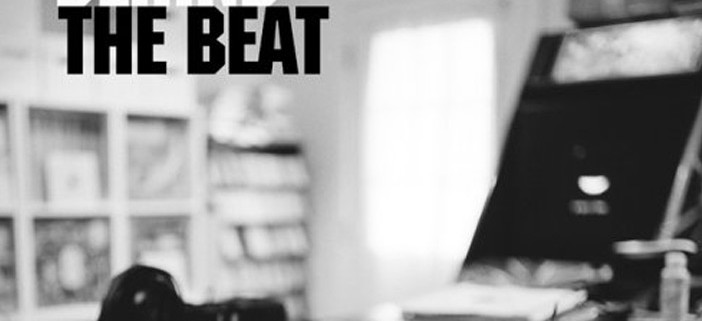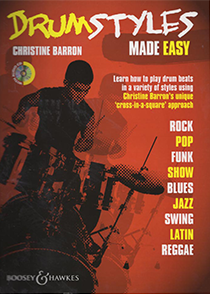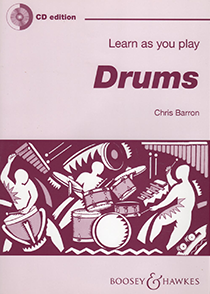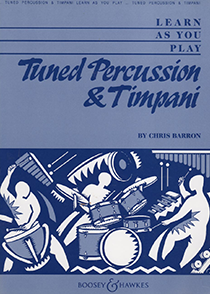Behind The Beat
This article first appeared in the Summer 2009 edition of the National Association of Percussion Teachers Newsletter UK
There is no doubt about it, playing drums is great. However, the music industry is probably one of the most difficult and competitive professions to work in. You need an abundance of single-minded determination to become a successful artist. Therefore, I believe that the more diversified you are the better the chance of riding out the storm. This worked well for me because I have always had a desire to express myself through as many means available to me. But it didn’t start easy.
The early years
My childhood was an intensely, unhappy and difficult period of my life due to being born into extreme poverty as well as having very young incompatible parents. However, music was all around me and as far back as I can remember, it was my only escape route, which pulled me through those very unhappy and difficult periods of my life. Whatever genre of music I heard, be it beautiful melodies of the Classical composers, popular music, Big Band Swing and Jazz music followed by Pop/Rock music, I was well and truly hooked. I was so passionate about music I can honestly say that if it weren’t so I could have easily travelled along the wrong road. I did encounter dark periods in my life however, (and still do), but always, music pulled me through.
Drums played a major part in this, especially when I heard great drummers performing such as Gene Krupa, Louis Belson and my idol, Buddy Rich. I cannot stress enough how inspired I felt when I heard these drummers playing their rhythms and fantastic drum solos. I became so excited, butterflies formed in the pit of my stomach. Drums became more important to me than anything else!
Ironically, I began playing drums because of an accident I had in the playground of my Junior School. I tripped over and broke my left wrist! During my recovery period, the plaster cast was taken off. Then I was told to exercise my wrist as soon and as often as possible. One day, my music teacher at my school suggested I play the snare drum in the school orchestra. I took her advice, which was great, as not only did it strengthen my wrist, it also enabled me to become more involved in the music I felt so passionate about.
Art School
I was quite artistic too as a child and I really enjoyed drawing and painting. Later when I was around 11 years of age, I took the entrance examination for the only Art School in Birmingham. Imagine my excitement when I heard that I had passed the Art School entrance exam. It was during my spell at the Art School that I took up learning how to play the drums properly, by taking lessons from a private drum teacher at a music shop in Birmingham. My drum teacher was fabulous but very strict. He taught me everything, such as drum rudiments and the various ways of holding sticks etc. He would also tell me to practice thoroughly and to get everything exactly right before he put me onto the next exercise. In fact, he also taught me what true professionalism is all about which later held me in good stead once I was a professional musician.
Professional work
As I progressed, I began working as a freelance cabaret and theatre musician. After several years of working in top rated summer season and Pantomime shows, I was offered tours and cabaret shows throughout the UK and the rest of the world. It was during this early period of my career that I began to diversify a little by starting to teach drums especially in-between shows to help keep the ‘wolf away from the door’!
I also wanted to channel my creativity further but couldn’t think of anything other than going back to the visual art of drawing and painting again. Then I remembered that I did have some piano lessons sometime earlier on in my life, so I thought maybe I should start taking piano lessons again starting from where I left off. Also for some reason, I wanted to become a vocalist too so I began taking singing lessons at the same time as the piano. I decided to have lessons from a dear lady music teacher in Birmingham who taught Opera as her main musical subject. After a short period of having vocal lessons, I soon realised that becoming a vocalist was not for me so I stuck to learning the piano instead! I’m glad I did as this helped me immensely when I started composing and orchestrating later on.
During the period of having these lessons I was offered to play percussion for a musical show called ‘The Dancing Years’ by Ivor Novello, which was performed at a local theatre in Birmingham. One day I invited my music teacher to a performance of the show, as I knew she would enjoy the show very much. At the end of the performance, she told me how impressed she was with my drumming and suggested I could further my career by learning how to become a Musical Director. I had to admit to her that I’d never thought about this and besides, I really didn’t know enough about music, let alone conducting it! So she then gave me some music lessons in the theory of music using the ABRSM examination route. I did quite well but to be honest, I enjoyed the composing and putting music to lyrics part of the exams the best. My music teacher detected this and told me that at last, I’d found my niche! This boosted my confidence immensely and so later I studied the art of song writing, with which I had some success. However, I soon realised that I needed more knowledge in the art of being able to arrange and orchestrate my compositions. So I decided to take an Arranging/Orchestrating course to further my career. It was during this period of training that led me onto becoming a professional and successful songwriter and composer.
My teaching methods
During the teaching part of my musical career I have always enjoyed teaching in a simple and enthusiastic way. I find this builds up a good rapport with the student. If a student has difficulty learning an exercise or piece of music I have given them, I try to find easier ways of getting my message across, therefore making the lesson more interesting and fun for us both.
The cross in a square idea, which I first used in the LAYP Drums book, came about when I was giving a drums/percussion workshop at Rugby High School for Girls. At first, like many other students they found it difficult to learn to read drum kit music. It was then that I first thought of the cross in a square idea. I wrote the cross in a square grid on the blackboard and the drum kit music on the stave underneath. The girls soon picked up the idea and realised that reading drum parts was not as difficult as they had first thought!
I also find that most beginner drummers want to learn how to play a Pop/Rock beat right away. Obviously, they must have the ability to co-ordinate to achieve this. So first of all, I use the first cross in a square exercises on page 9 and 10 of my LAYP Drums book, as using this system tells me right away whether a student has good co-ordination skills. If they cannot co-ordinate there and then, I give them a week or two to learn the method. If they still have problems with their co-ordination but are still interested in percussion, I take them on to learning a single percussion instrument instead. This can be an instrument such as a snare drum – which also features in the LAYP Drums book, or a tuned percussion instrument or timpani, learning from my LAYP Tuned Percussion and Timpani book to get them started.
Advice I give to students along the way
As a drum kit student progresses, I find that if I slowly introduce other styles to consider such as Jazz, Swing, Latin and so on, I soon have the students in the palm of my hand, especially when I show them examples of the many different styles and techniques around. Another ‘jaw dropper’ very often happens when I show my students some very fast paradiddles or ‘mama dada’ rolls with lots of accents thrown in. Afterwards they often say to me ‘can you teach me how to do that?’ Obviously I tell the students that to play like this or like some of their drum kit idols, they need to work very hard and to practise because nothing comes easily.
Another question I’m often asked is ‘How can I become a session drummer like you?’ First of all I say to them you must develop your technique, skills and learn to sight-read. ‘What?’ they often say with surprise, ‘Rock drummers don’t need to read music!’ ‘But’, I tell them, ‘If you want to devote your life to playing drums and want to do session work, you must learn to read, as instant results are required because time costs money. Being able to read and play drum music is a great skill to have, as like speaking a foreign language, you never know when you might need it.’
I have often given the students some examples of the many risks I’ve taken throughout my career, especially early on, which I wouldn’t have been able to have taken if I hadn’t had some knowledge of being able to read drum music. I’ve ‘put my head on the block’ or ‘jumped in at the deep end’ so to speak, as this helped me to learn and develop as a musician. For example, I took jobs in the theatre, which were offered when the original drummer was perhaps taken ill. These situations of course were often fraught with danger as usually there wasn’t time for a rehearsal or band call, just enough time to look through the dots with the musical director – if I was lucky that is!
I often advise my students to constantly look learn and listen to their favourite drummers who inspire and influence them – it’s priceless! I say to them, ‘Capture their styles, tricks and techniques and eventually you will develop a unique style of your own. Be emotional and play how you feel. Play differently on every gig and don’t be too mechanical, be spontaneous. Even if you feel you’re not up to it on some gigs, play your best – if the audience like it, then you’ve done a good job. You must also be absolutely dedicated and passionate about your drumming. Spend every moment of your life, playing and practising in your pursuit of excellence. Whether you play in a Big Band or group you must be the driving force and excite the other players. That way you will bring out the best in them and enable them to play even better! Finally, try not to feel inferior when asking for work; persist (without making a nuisance of yourself!) until you get the job, then move on.’
Also as a session drummer, I tell them that they need to know that more styles of music exist today than ever before, as it is continually changing and expanding. Fusions and crossovers of different styles and cultures are creating an even wider variety of musical styles. ‘All round drummers’ therefore, are a great asset because of their ability to play in these many styles. They need to know, for example, how to play rhythms for contemporary rock and pop, funk, blues, jazz, Latin, Caribbean and African music and many other styles in order to become accomplished musicians.
During one of my percussion workshops, I was asked who my favourite young drummer was of today. I had to think long and hard about this question and had to finally admit that this was a question I couldn’t really answer! ‘Although there are some excellent drummers around today’ I told them, ‘I can’t really tell who is playing because unfortunately, most of them – with some exceptions of course – sound the same! During the past you could always tell whether it was either Gene Krupa , Ginger Baker, John Bonham, Pete Townsend of the ‘Who’ or the great Buddy Rich who were playing because each drummers personality shone through. ‘Therefore’ I told my audience, ‘Desire and passion are your goals, so that you not only play your best but you also play with FEELING. Let your personality shine through in whatever style, solo or groove you are playing’.
A final word I would like to say in this article is that I think that a versatile and flexible session drummer is essential today for having the ability to play in a wide variety of styles for studio work, live variety theatre shows, backing cabaret, playing on cruise liners, brass and woodwind bands, small jazz groups, dance and swing bands, strict tempo dance bands and so on. However, using all four limbs and being able to co-ordinate when playing drumbeats in these many styles can be difficult to achieve and master for a drummer. This is why I wrote my new book entitled, ‘Drum Styles Made Easy’.







Leave a Reply
Want to join the discussion?Feel free to contribute!